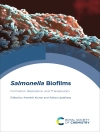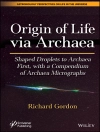This edited book aims to focus on microbial diversity in arid lands and deserts versus specific microbial assemblages associated with plants. The book explains ecological drivers that shape this diversity, how plant-associated microbiomes are selected, and their biotechnological potential are discussed. Diversity and functional redundancy of these associated PGPM make them very active in supporting plant improvement, health and resistance to drought, salt and other stresses, and these dimensions will be explored in this book. Implementing proper biotechnological applications of the arid and desert-adapted PGPM constitutes a sizeable challenge, and the book attempts to take up that challenge and help researchers in this field to gain a detailed understanding of PGPM from arid ecosystems. This book serves as a handbook for research workers, teachers, postgraduate students and extension personnel, other development workers, and policy planners engaged in arid zone development.
Spis treści
1. Exploring Microbial Diversity of Arid Regions of Globe for Agricultural Sustainability: A Revisit.- 2. Harnessing drought tolerant PGPM in arid agro ecosystem for plant disease management and soil amelioration.- 3. Role of Plant Growth-promoting Bacteria in Rainfed and Irrigated Crops.- 4. Plant Growth Promoting Microbes: The Potential Phosphorus Solubilizers in Soils of Arid Agro-ecosystem.- 5. Diversity of PGPM and Ecosystem Services.- 6. Plant Growth Promoting Microorganisms: An Option for Drought and Salinity Management in Arid Agriculture.- 7. Plant Growth Promoting Microbes: Key Players in Organic Agriculture.- 8. Interceding Microbial Biofertilizers in Agroforestry System for Enhancing Productivity.- 9. Role of PGPM in Managing Soil Borne Plant Pathogens in Horticulture Crops.- 10. The Use of Plant Growth Promoting Microorganisms in the Managementof Soil-Borne Plant Pathogenic Organisms.- 11. Role of plant growth promoting microbes in managing soil-borne pathogens in forestry.- 12. Secondary Metabolites and Bioprospecting.- 13. PGPM: Fundamental, Bioformulation, Commercialization and Success at Farmer’s Field.- 14. PGPR: A Sustainable Agricultural Mitigator For Stressed Agro-Environments.- 15. Endophytic PGPM derived metabolites and their role in arid ecosystem.- 16. Current regulatory requirements for PGPM products for management of seed, soil and plant health: An overview.- 17. Evolving Concepts of Biocontrol of Phytopathogens by Endophytic Pseudomonas fluorescence.- 18. Symbiotic Effectiveness of Rhizobium Strains in Agriculture.- 19. Inoculant Production and Formulation of Azospirillum Species.
O autorze
Dr. Ritu Mawar is a Principal Scientist (Plant Pathology) at the ICAR-Central Arid Zone Research Institute (CAZRI), Jodhpur, India. She worked in management of soil borne plant pathogens by soil solarization, use of cruciferous residues, composts, and biological control, etc. She has received Best Women Scientist Fellowship from DST and 2 Indian Patents. She has published more than 75 research papers, book chapters, and popular articles in high impact journals and has authored 5 books. She has presented her research at various international platforms in the county and abroad and has received a number awards. She served as peer reviewer of Foreign Research Journals and DST funded projects. Life Member & Fellow of Indian Phytopathological Society and serving as Advisory Board Member of Asian PGPR Society for Sustainable Agriculture. She bestowed by D P Mishra & R N Panday IPS best Women Scientist award in 2022 by Indian Phytopathological Society, IARI, New Delhi.
Prof. Riyaz ZSayyed is a Professor and Head, Department of Microbiology, PSGVP Mandal’s Arts, Science College, Shahada, India. Currently, he serves as the President of the India chapter of the Asian PGPR Society for Sustainable Agriculture (Estd 2019). To his credit, he has received the Best Teachers Award, Young Scientist Award (2005, 2008, and 2012), Prof M M Sharma Award, Springer-Society Award (2020), Award for Excellence in PGPR Research (2017, 2018, 2019). He has over 25 years of teaching and 20 years of research experience in Microbiology and Biotechnology. He has authored and co-authored over 200 research papers in high IF international journal, 24 books and 43 book chapters with international publishers.
Dr. Sushil Kumar Sharma is a Principal Scientist at ICAR-NIBSM, Raipur, India. He works in the area of microbial resource conservation and antimicrobial peptides production by bacteria for biotic stress management in crops. He has served officer In-charge at ICAR-National Bureauof Agriculturally Important Microorganisms (NBAIM), Maunath Bhanjan, Uttar Pradesh, India. He has delivered talks in various International conferences in the country and abroad. He has published more than 100 research articles internationally recognized and good impact journals. He received the Best Scientist award by PEARL Foundation, Madurai, India and Excellence in PGPR Research award by Asian PGPR Society. Recently, he has been nominated as a member of Biosafety and Biosecurity Cell (B2Cell) of Indian Council of Medical Research (ICMR), New Delhi.
S. Krishna Sundari, presently serving as Professor in the Biotechnology Department of JIIT, NOIDA. She has 20 years of Academics & Research experience, working at places of National & International repute such as The Energy and Resources institute, New Delhi; INRA, Champenoux, France; and brief work assignments at ENSAIA, France; Universitae Henrie Poincare, France, University of Florida, Gainesville, USA. She harbors research Interest in the area of Microbial Biotechnology with applications for Agriculture, Environment & Industry. She has published nearly 25 papers in international refereed journals and has more than 50 conference papers and book chapters. Prof. Krishna holds membership in various international scientific societies and presently serving as Exec. Vice President for Asian PGPR Society, Auburn, USA.












